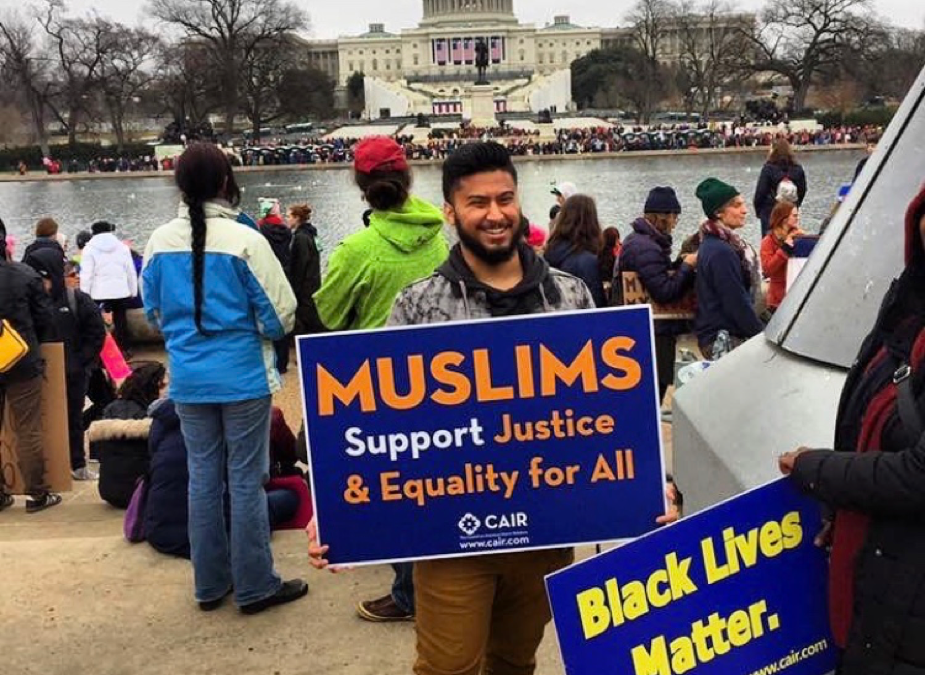
“O ye who believe! stand out firmly for justice, as witnesses to Allah, even as against yourselves, or your parents, or your kin, and whether it be (against) rich or poor: for Allah can best protect both. Follow not the lusts (of your hearts), lest ye swerve, and if ye distort (justice) or decline to do justice, verily Allah is well-acquainted with all that ye do.” Surah An Nisa 4: 135
This holy scripture has always stuck with me ever since I could remember. It outlined the significance and application of social justice to everyone starting from oneself and it doesn’t stop regardless of blood tie or socioeconomic tie. It is fair and balanced to everyone under the eyes of God. For me, this scripture also displayed how faith and justice can go hand in hand. This is very near and dear to me as I hold both Faith and Justice as the same. My religious voice has been present in my advocacy work, professional life, and in the public square having worked at two faith-based organizations and very closely with faith-based partners. Believe me when I tell you that there is no off switch. My religious voice is my voice.
Having worked in the civil rights department at the nation’s largest Muslim civil rights and advocacy organization, I have heard from the community first hand on the violations and attacks on their religious rights and freedoms. I would oftentimes host Know Your Rights workshops where I would engage with the community. Not only did I feel empowered, but I believe the community at large also did as sometimes they may not be aware of some of the religious rights and freedoms we have in this country. After knowing about these rights they can feel more safe and proud of practicing their faith, something that so many around the world have to seek refuge for fear of persecution. Many stories that I have heard firsthand as I was also blessed with the opportunity to work with recently resettled refugees in Baltimore. I ran a mentorship program where community members can mentor a refugee family for six months. I loved this experience as I not only got to work and connect with families from all over the world but got to tell volunteers how to get involved. I believe that so many people would like to get involved but just don’t know how. Through my time at the resettlement agency, I would partner with the faith-based community on this project.
Having attended various religious services, what I have observed is that all the major faiths have vast similarities whether we are talking about providing refuge or food and shelter to the poor and needy. I believe too often we as a society focus on the differences instead of the similarities. We must come together and speak up for the oppressed and for the people who do not have a voice in this world as they are often marginalized and forgotten. I am frustrated when I hear people misinterpreting or cutting and pasting scripture out of context in the pubic square. However, I always give people the benefit of doubt as they may not know that what they are saying is actually incorrect. This is why I believe interfaith dialogue is so important. Once people hear and see firsthand that people of other faiths are just normal people but practice differently than them, but still choose to reject, it is no longer ignorance but bigotry. We are living in a moment in time where bigotry has been emboldened and embraced by members of our own government. It is our responsibility to correct those who misinterpret and misunderstand.
Open dialogue is the key to achieving understanding. The ICJS Imagining Justice in Baltimore series is a great outlet for dialogue. The fellowship has been a great experience for me where I not only got the opportunity to meet other community leaders and hear some of their stories but also have to opportunity to study and grow together with them. We used scriptural text to analyze the Department of Justice report on the investigation of the Baltimore city police department. Having a wide background of fellows and personal experiences made the conversations very interesting. Reading our sacred texts together equipped us for understanding a secular text like the DOJ report. Ultimately circling back to the question we started with, how should Baltimore Muslims, Christians, and Jews respond to the injustices and inequities in our community? ICJS highlights the continuous importance of bringing diverse religious perspectives to address civic and social challenges. Will you stand firmly for justice with us?
More subtly, religious institutions can obscure our natural relationship to our own inherent wisdom. They allow us to shortcut our own hard work of discovery and evolution. They feed us pre-determined “truths” and placate our concerns by giving us an easier path. We can feel virtuous simply by showing up and doing what we’re told.
Salman Zaman is Development Coordinator with Islamic Relief USA, and a member of the 2018 ICJS Justice Leaders Fellowship.
Baltimore is part of a national conversation around questions of justice, race, and community. Members of the ICJS Justice Leaders Fellowship consider how Jewish, Christian, and Muslim teachings and practice can contribute to the public conversation about (in)justice. Opinions expressed in this blog are solely the author’s. ICJS welcomes a diversity of opinions and perspectives. We do not seek a single definition of justice between or within traditions.